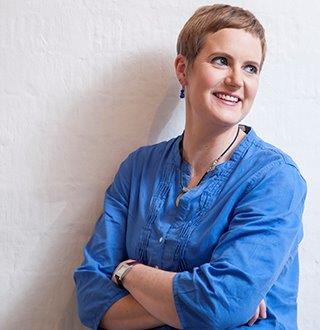Latest News Archive
Please select Category, Year, and then Month to display items
08 April 2021
|
Story Thabo Kessah
|
Photo UFS Photo Archive
 Dr KPD Maphalla with former UFS Chancellor, Dr Franklin Sonn, during the graduations in April 2007.
Dr KPD Maphalla with former UFS Chancellor, Dr Franklin Sonn, during the graduations in April 2007.
The University of the Free State is sad to learn of the passing of alumnus and award-winning Sesotho literary giant, Dr KPD Maphalla.
The literary works of Dr Khotso Pieter David Maphalla, like many other African writers and artists, were influenced and characterised by his own era of powerful forms of oppression and exclusion from dominant literary discourses. In his own right and through his writings of poetry, novels, short stories, and kodiamalla (dirge), he articulated a deliberate political and social protest and pushed for a place for African languages in literature at the height of apartheid.
“He entered the professional scene with his ground-breaking novel, Kabelwamanong, in 1982 at the age of 27. His career actually started in 1971 while he was still at school. Since his first novel, he has produced at least two books annually, covering the genres of poetry, novels, dramas, and short stories. As a dramatist, Dr Maphalla has written a number of excellent and educative radio dramas for the then Radio Sesotho (now Lesedi FM),” said his long-time friend and Head: African Languages at the University of the Free State, Dr Nyefolo Malete.
“It was for this writing prowess that he received recognition from the UFS when he was awarded an Honorary Doctorate in Literature by the Department of African Languages during a momentous ceremony on the Qwaqwa Campus in 2007,” added Dr Malete.
Dr Malete also revealed that, despite losing the use of his right hand after suffering a stroke following a car accident in the late 1990s, Dr Maphalla continued writing using his left hand. “He was adamant that, what he referred to as his ‘supposed disability’, would not deter his passion for writing.”
Dr Maphalla’s work has also produced numerous scholarly studies by the likes of Profs Moleleki Moleleki (protest poetry), Thapelo Selepe (lament and protest poetry), and Dr Seema Seema (process of cross-cultural communication). He was a committed Qwaqwa community member, who was also instrumental in the founding of Qwaqwa Community Radio (2000) and Metjodi Writers (2006), among others. He has written more than 70 books, many of which have been prescribed texts in schools.
Some of the awards he has won include:
South African Centre for Digital Language Resource (SADiLar) Sesotho Lexicographic Unit (Sesiu sa Sesotho) Lifetime Award for outstanding literary works and for promoting Sesotho literature (2019).
The Literature Festival and the University of the Free State Award for enormous contribution to Sesotho literature by a South African writer (2019).
Lifetime Achiever Award in Literature awarded by the Department of Arts and Culture (2005).
M-Net Book Prize for Sesotho poetry (2005). The first and thus far the only Sesotho author to have received this honour.
M-Net Book Prize for best novel (1996).
De Jager-HAUM Literary Award for his volume of short stories, Mohlomong Hosane (1993).
Thomas Mofolo Trophy for Best Novel, Best Poetry, and the Overall Award (1992).
Thomas Mofolo Trophy for Best Poetry (1991).
Dr JJ Moiloa Floating Trophy for Best Sesotho Poetry Book of the Year, Kgapa tsa ka (1985).
#Women'sMonth: PSP provides scholarly support system for Prof Wilson-Strydom
2017-08-17

Prof Merridy Wilson-Strydom loves asking questions and
therefore has a strong focus on research.
She also enjoys supervising PhD students.
Photo: Sonia Small
Publishing her first book and receiving a rating from the National Research Foundation (NRF) are career highlights for Prof Merridy Wilson-Strydom. As an emerging scholar, the Prestige Scholars Programme (PSP) of the University of the Free State (UFS) played an important role in reaching these goals.
According to the Associate Professor in the Centre for Research on Higher Education and Development, the PSP provided an important scholarly support system, both through the coordinators and the other researchers who are part of the programme.
Writing retreats made book possible
“I found the support and advice provided during the process of applying for funding and rating really helpful,” she says about receiving a NRF C2 rating, based on her work over the past eight years.
She compliments the PSP writing retreats, which “provided a wonderful space for writing and it was during the writing retreats that I did a lot of the writing for my book that was published by Routledge in 2015.” Her book, University Access and Success: Capabilities, Diversity and Social Justice, moving back into academia from institutional research, working closely with undergraduate students as research participants, and postgraduate supervision, are all highlights of her work.
Her book makes a valuable contribution to higher education literature related to access and transition to universities. But, contrary to the mainstream approaches to access which rely on school performance and admissions tests, she poses the issue of social justice at the centre of the analysis.
Student project produces E-book
Another project headed by her and funded by the NRF Thuthuka Programme, was a study to understand the lives of 40 undergraduate students (on the UFS Bloemfontein Campus) who attended township high schools. The study had a particular focus on identifying institutional practices that either enable or constrain students’ capabilities for success in undergraduate study.
One of the outputs was the writing of an E-book called In our own words: Perspectives on being a student. It was written by 30 undergraduate students and the purpose was to provide a platform for students to tell their own stories about life as a student.